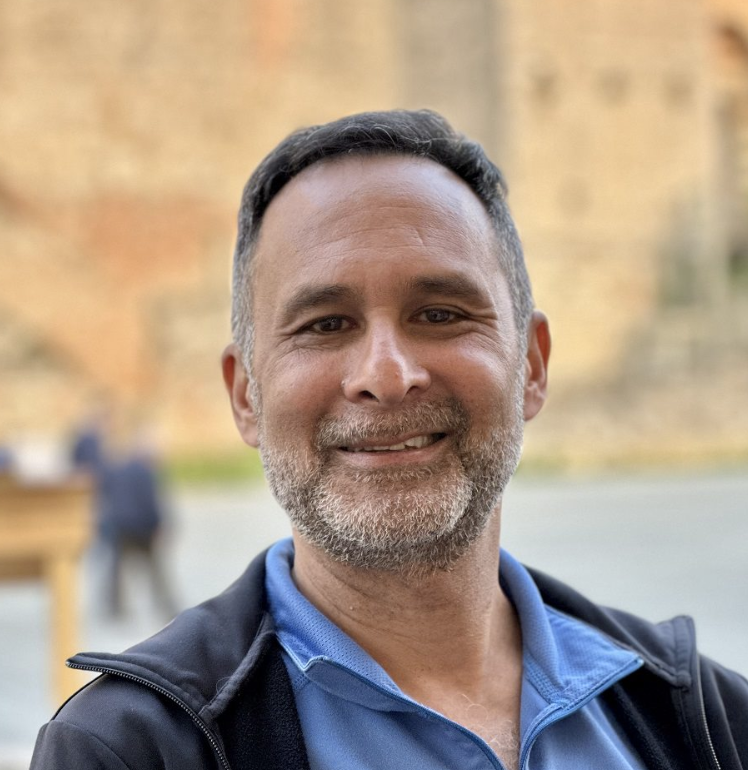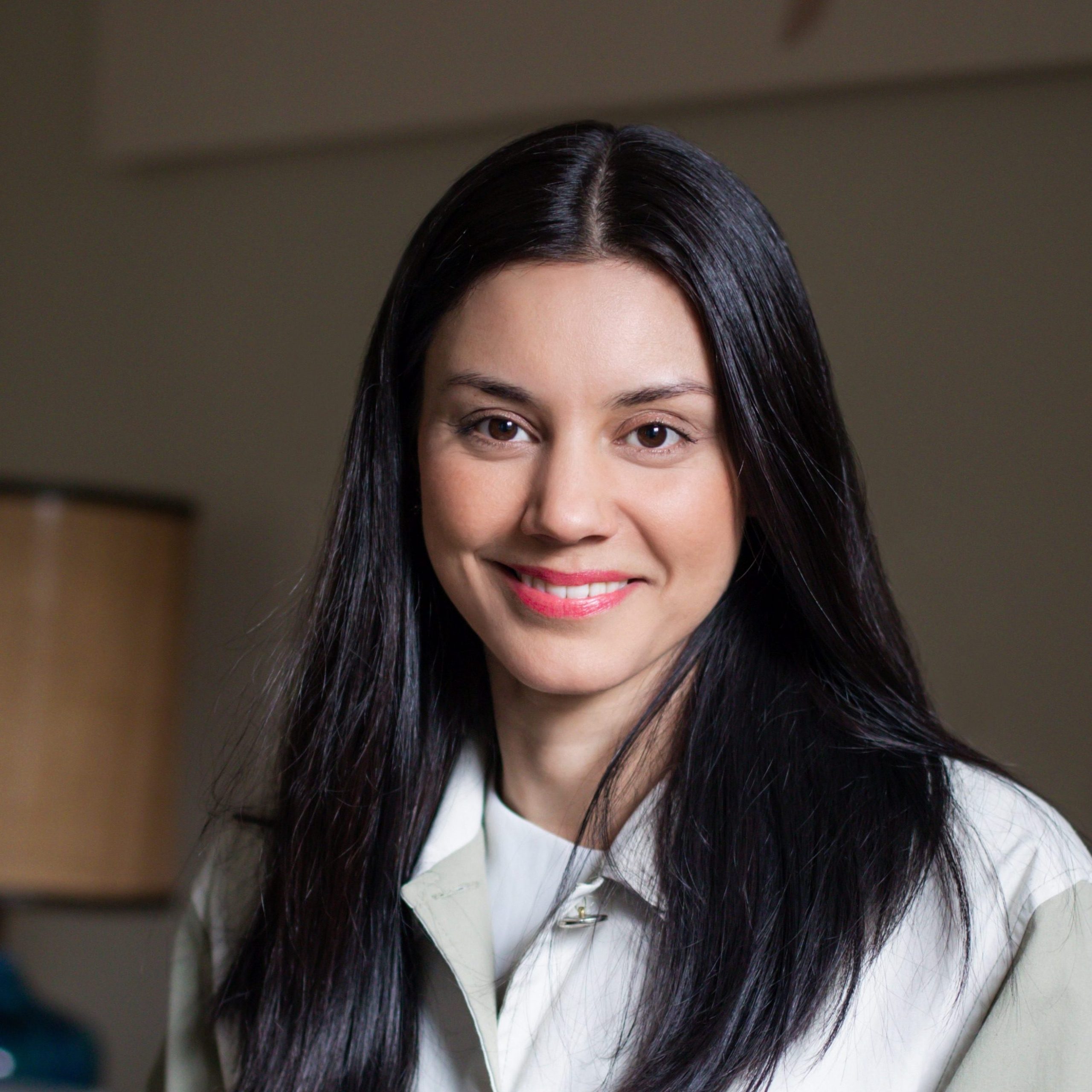Watch the recording and/or read our Digest Guide for our It Starts With Us session, held virtually on Wednesday, March 5, 2025. In this session, we had a conversation with health professionals and educators examining the concept of professionalism. We explored which aspects still matter in today’s diverse environments, and whether professionalism can support fostering inclusive spaces where people can bring their whole, authentic selves to work or study. (See full description below).
Watch The Recording
Read the REDI Digest Guide for the session
REDI Digest guides are learning resources based on past REDI webinars. They highlight key concepts and themes, and offer reflection questions and readings to complement the webinar recording. Designed with educators in mind, the guides support effective use of the recording in teaching, team learning, and ongoing professional practice.
Speaker bios

Laura Yvonne Bulk (She/Her), PhD, OT (Reg. BC), BSW,
Assistant Professor of Teaching, Occupational Science & Occupational Therapy, Faculty of Medicine, UBC
Dr. Laura Yvonne Bulk is a daughter, friend, cousin, tante; she is a Dutch settler to W̱SÁNEĆ territory; she is a first-generation university student, a disabled scholar, and an occupational therapy educator. She is an advocate and artist. As an Assistant Professor of Teaching in Occupational Science & Occupational Therapy at the new site located in Surrey, she has the opportunity to engage in educational leadership activities. Her work focuses on promoting justice (right relationship) in academia, interprofessional education, and in distributed health professions education. Her justice work includes taking a curious approach to how professionalism is conceptualized and challenging herself and others to consider how our conceptualizations might exclude particular people.

Niresha Velmurugiah (She/Her), FRCPC,
Emergency Physician, Vancouver General Hospital;
Clinical Assistant Professor, Department of Emergency Medicine, UBC;
Curriculum Lead, Student Professionalism, Equity, Diversity and Inclusion, UGME
Dr. Niresha Velmurugiah obtained her Doctor of Medicine and completed her residency in Emergency Medicine at the University of Alberta. She works as an Emergency Physician at Vancouver General Hospital and UBC Hospital, and as a Clinical Assistant Professor with the UBC Department of Emergency Medicine. She has a background in health disparities and experience in medical education development in the area of EDI. She currently serves as the curriculum lead for Professionalism, Equity, Diversity, and Inclusion for Undergraduate Medical Education at UBC.

Robert Sternszus (He/Him), MDCM, MA (Ed), FRCPC,
Associate Professor, Pediatrics & Health Sciences Education,
Wendy MacDonald Chair in Pediatric Medical Education, McGill University
Dr. Robert Sternszus, is a Hospitalist Pediatrician and an Associate Professor of Pediatrics and Health Sciences Education at McGill University with a Master’s Degree in Educational Psychology. He has been intricately involved in Residency Education in Canada having served as a Pediatrics Residency Program Director and Competence Committee Chair at McGill University, a member of the Pediatrics Specialty Committee and the Residency Accreditation Committee of the Royal College of Physicians and Surgeons of Canada, and a Co-Chair of the Professional Role Expert Working Group for the ongoing CanMEDs project. Dr. Sternszus also currently holds the Wendy MacDonald Chair in Pediatric Medical Education in the Department of Pediatrics at McGill University and serves as the Professionalism Curriculm Lead for the Undergraduate Medical Education Curriculum at McGill University. His scholarship focuses on the areas of resident role modeling, professionalism, and professional identity formation. His current focus is on the interplays between competence and identity as well on supporting the development of agency, a sense of belonging and authentic professional identities in medical students and residents. Dr. Sternszus’ contributions to medical education have been recognized by the receipt of a Certificate of Merit from the Canadian Association of Medical Education in 2021 as well as the 2022 Association of Faculties of Medicine of Canada Young Educator Award.

Saleem Razack (He/Him),
Paediatric Intensivist, BC Children’s & REDI Senior Faculty Advisor
Dr. Razack is a Senior Faculty Advisor in the Office of Respectful Environments, Equity, Diversity, and Inclusion (REDI) in the Faculty of Medicine. In his role, Dr. Razack advises on strategy related to the implementation of a comprehensive anti-racism plan for the Faculty. He aims to serve in and contribute to the vibrant and diverse community within the Faculty of Medicine and its associated clinical and research sites.
Moderators

Maï Yasué (She/Her),
Associate Director, REDI
Dr. Maï is the Associate Director of the Office of Respectful Environments, Equity, Diversity, and Inclusion (REDI) in the Faculty of Medicine. She provides leadership to the REDI team in the development and delivery of our education and training programming. She collaborates with leaders in departments, centres, and administration units, and staff, and faculty to identify institutional and individual barriers to inclusion and to foster long-term socio-cultural change towards justice, equity, decolonization, indigenization, and inclusion (JEDII). Previously, she worked at the Equity & Inclusion Office at UBC, where she led initiatives such as the JEDII STEM Series and the IBPOC STEM Network and supported the integration of the JEDII principles into teaching, research, and faculty and staff recruitment. Prior to her work at UBC, she was a faculty member at Quest University Canada for over a decade, teaching interdisciplinary courses in conservation and geography and advocating for transparency, equity, and inclusion through various leadership roles.
Maï, a second-generation immigrant from Japan, holds an MSc in Zoology from the University of Oxford and a PhD in Geography from the University of Victoria. As an interdisciplinary scholar, she has published over 40 articles in academic fields such as conservation, geography, zoology, education, behavioral ecology, economics, and psychology. She is grateful for having spent most of her life on the traditional, ancestral, and unceded territories of the xʷməθkʷəy̓əm (Musqueam), Sḵwx̱wú7mesh Úxwumixw (Squamish), səlilwətaɬ (Tsleil-Waututh), and Stó:lō Nations.

Harpreet Ahuja (She/ Her),
Equity Advisor, REDI
Harpreet Ahuja (She/Her/Hers) is an Equity Advisor at the Office of Respectful Environments, Equity, Diversity, and Inclusion (REDI) within the Faculty of Medicine. In her capacity at REDI, she offers strategic guidance and supports capacity-building for department heads, faculty, staff, and students who are dedicated to implementing decolonization, anti-racism, and inclusive practices.
Harpreet is the daughter of an immigrant father from India and a Labradorian Inuit-Polish mother. She was born and raised in Montreal studying in French, then spent her teenage years in downtown Toronto. Her culturally diverse upbringing ignited her curiosity and fueled her passion for social justice.
Her journey into Equity, Diversity, and Inclusion (EDI) awareness began as a law student when she was nominated by the faculty of law to serve as the Vice President of Equity for the Common Law Student Society. She carried her EDI change management experience into her role as an Investigator in the Critical Injuries and Deaths Division with BC’s Office of the Representative for Children and Youth, where she worked to prevent the deaths of vulnerable children in government care.
Harpreet’s approach to embedding EDI is informed by an international context. She has worked on death penalty cases in Malawi, studied genocide education in Rwanda, and Holocaust education in Poland and Germany. She provided legal assistance to migrants on the U.S.-Mexico border and resettled LGBTQI+ Syrian refugees, working out of a satellite office in Israel. She wrote children’s books for schools in Honduras and taught English to university students in Ecuador. Most recently, in October 2022, she worked as an Electoral Observer for the Office for Democratic Institutions and Human Rights in Bosnia and Herzegovina.
Harpreet is a lawyer by training, holding a law degree from the University of Ottawa (2017) and a Master of Laws degree in International and Comparative Law from the University of California, Los Angeles (UCLA) School of Law (2019). During her time at UCLA, she was honoured with the Dean’s Tuition Fellowship Award, UCLA School of Law’s Public Interest Award, and a post-graduate fellowship at Yale Law School. Her legal career began with Legal Aid Ontario, where she gained experience in refugee law, aboriginal law, and criminal litigation. She was subsequently Called to the Bar in Ontario and British Columbia.
Prior to joining our team, Harpreet served at arms-length for BC Corrections in the Adult Custody Division, where she was appointed by the Assistant Deputy Minister in the Ministry of Public Safety and Solicitor General as an independent decision-maker presiding over disciplinary hearings within the 10 provincial correctional centres in BC.
Harpreet acknowledges that she is on the stolen lands of the unceded territories of the xʷməθkʷəy̓əm (Musqueam Indian Band), Sḵwx̱wú7mesh (Squamish Nation), and səlilwətaɬ (Tsleil-Waututh Nation). She expresses gratitude to Indigenous Peoples for their enduring connection to their lands and is committed to learning how to work in solidarity as an accomplice in shifting the colonial default.ce and supports capacity-building for department heads, faculty, staff, and students who are dedicated to implementing decolonization, anti-racism, and inclusive practices.
Description
- “As a professional, you need to stay neutral and not advocate.”
- “Avoid wearing bright colours and dandling earrings if you want to look professional.”
- “Don’t show emotions in a professional environment.”
- “To adhere to standards of professionalism, you need to keep your political views to yourself.”
- “I’d stick to a suit and dark colours to be taken seriously.”
- “To maintain professional conduct, we should always stick to our agenda.”
- “If you want to move up, choose carefully which parts of your identity you bring to work.”
- “Make sure your kids don’t appear in the background on Zoom—it’s not professional.”
- “You’ve got to look clean-shaven and professional.”
- “As a professional, I prefer not to share much about my personal life.”
Chances are you’ve been given advice like this at some point. As our working and learning environments become more diverse, it’s worth questioning which elements of “professionalism” are essential for competent and effective education and care, and which perpetuate gatekeeping, exclusion, and various forms of oppression.
In this thought-provoking session, we bring together health professionals and educators to examine the concept of professionalism. We’ll ask what aspects still matter in today’s diverse environments, and whether professionalism can support fostering inclusive spaces where people can bring their whole, authentic selves to work or study. Or, should we move beyond the term “professionalism” altogether and consider other concepts that create thriving contexts for all learners, faculty, and staff?
Learning Objectives:
- Define Inclusive Professionalism – Deepen your understanding of inclusive professionalism and how it differs from traditional notions of professionalism.
- Identify how professionalism norms in academic and healthcare environments can exclude or disadvantage historically, systemically, and persistently marginalized groups.
- Examine what should remain outside the boundaries of professionalism and how these boundaries should be determined.
- Apply the principles of inclusive professionalism to foster a sense of belonging and inclusion among faculty, staff, leaders, learners, and patients.
- Analyze the potential tensions between creating inclusive learning and working environments, advocacy, and authentically showing up in your various roles.
Topic: Inclusive Professionalism in Medicine
Date: Wednesday, March 5th, 2025
Time: 12:00 – 1:30 pm PT
Location: Livestream
